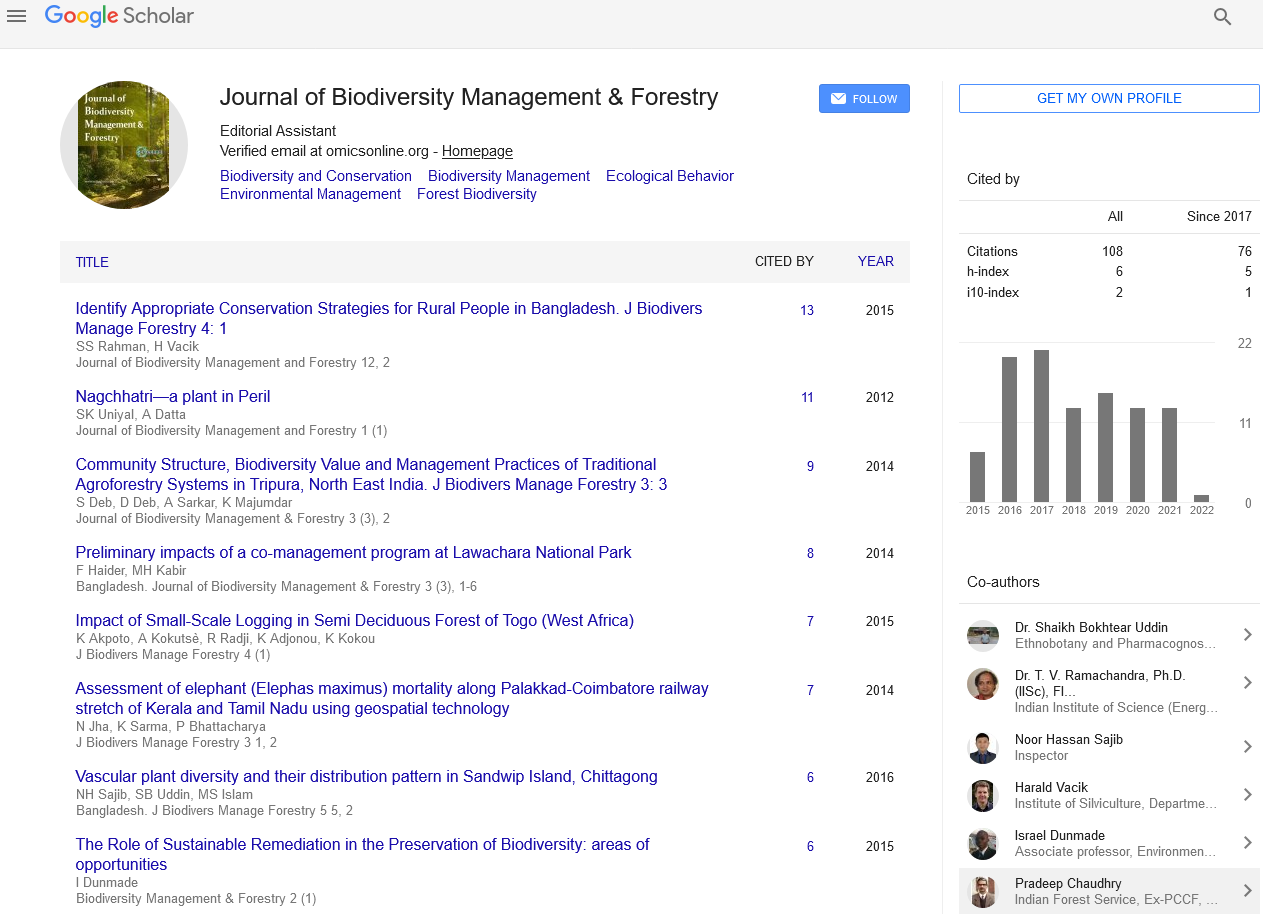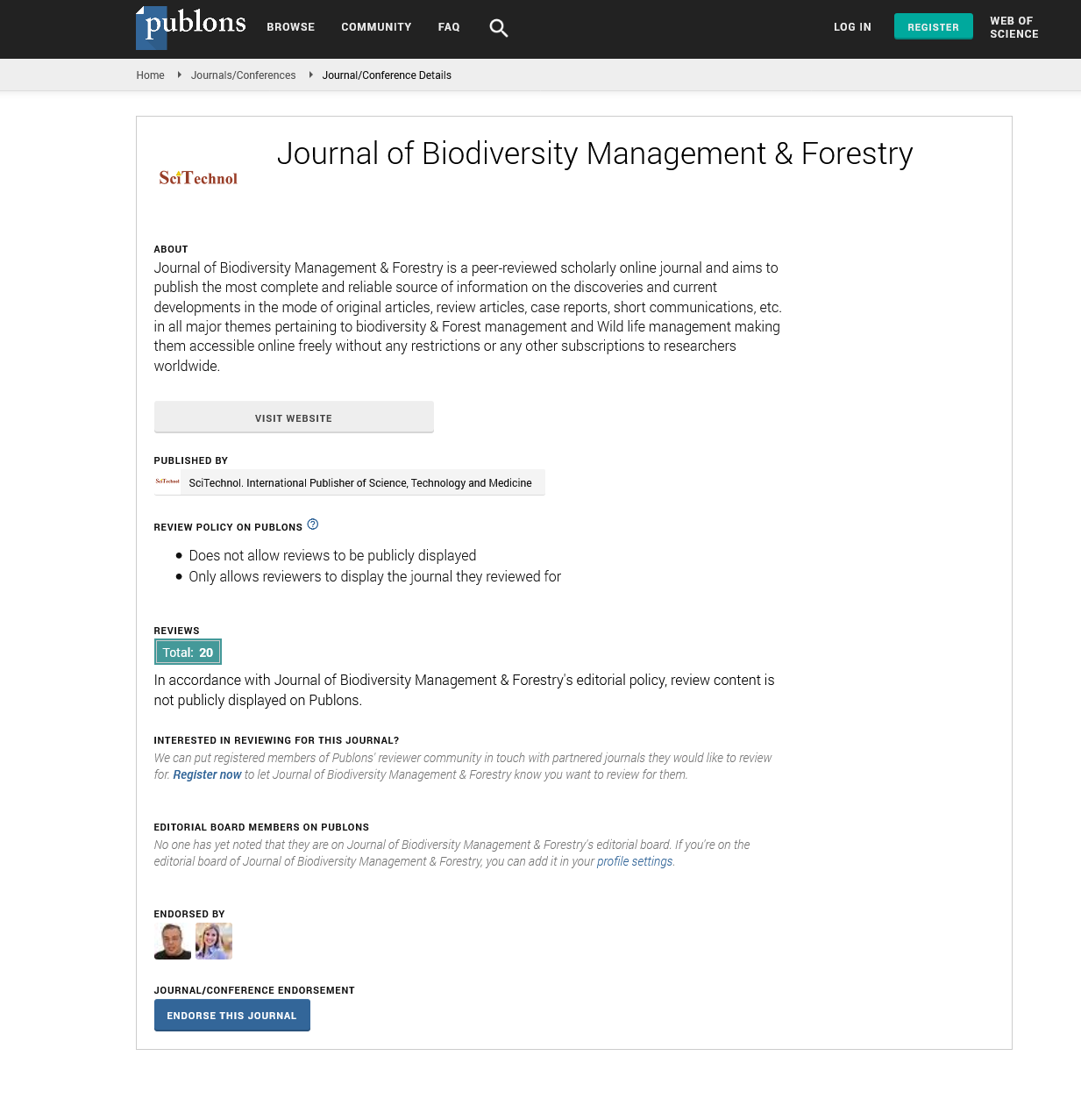Green urban areas as an equitable climate solution; carbon sequestration potential in arid cities
Israa AL Khaffaf
American University of Sharjah, United Arab Emirates
: J Biodivers Manage Forestry
Abstract
Statement of the problem: As cities worldwide witness the significant impact of climate change, locally adaptive solutions become increasingly crucial. Urban green areas play a great role as a climate solution. While urban vegetation's role in carbon sequestration is recognized globally, its application in arid environments remains understudied. The UAE, with one of the world's highest per capita carbon emissions, presents a unique opportunity to evaluate urban vegetation's contribution to climate change mitigation in challenging environments. Methodology & theoretical orientation: This study employs a mixed-methods approach, focusing on urban green areas from Sharjah, United Arab Emirates. The methodology integrates field surveys with detailed municipal vegetation data, including comprehensive information on vegetation quantities and species composition. Carbon sequestration assessment combines annual rates for carbon sequestration of trees with ground-truth measurements to evaluate current storage capacity and optimization potential. Findings: Analysis of Kashisha Park in Sharjah reveals current carbon sequestration rates between 22,524 to 60,931 kg CO2 per year. The study identified significant potential for enhancing these rates through targeted green infrastructure development and optimization techniques. Detailed assessment of species specific contributions provides insights into optimal vegetation selection and distribution patterns for arid urban environments. Conclusion: This research establishes the viability of urban vegetation as a nature-based solution for carbon sequestration in arid regions, particularly addressing areas traditionally underrepresented in urban greening studies. The findings provide practical guidelines for policymakers and urban planners, supporting the translation of climate commitments into actionable, community-level implementation strategies. The study demonstrates how strategic urban greening initiatives can significantly enhance carbon sequestration capacity while considering local environmental constraints.
Biography
Israa AL Khaffaf is a PhD candidate of Engineering Systems Management at the American University of Sharjah in United Arab Emirates. She has been working as a graduate teaching assistant and researcher at AUS while pursuing her PhD, focusing on sustainability and urban innovation since 2021. Her research work at the university's College of Engineering encompasses carbon sequestration through urban vegetation, material passports for circular economy, and integration of advanced air mobility in urban planning. She has been actively presenting at national and international conferences, including the Arab Housing Forum 2024 and EV MENA SHOW Event 2023, and published research papers in several peer-reviewed journals. Her work at AUS has earned her recognition as a "Distinguished Woman in Engineering" at the 9th International Women in Engineering Day.
 Spanish
Spanish  Chinese
Chinese  Russian
Russian  German
German  French
French  Japanese
Japanese  Portuguese
Portuguese  Hindi
Hindi 
